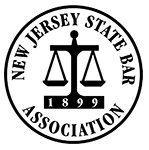On April 9, 2018, the Appellate Division once again upheld the exclusive remedy provision of the New Jersey Workers’ Compensation Act as set forth at N.J.S.A. 34:15-8 in Geraldine A. Rodrigues, as Administrator of the Estate of Alfredo Rodrigues, Plaintiff-Appellant, v. Eleven Vreeland, LLC, Defendant, and PCS Wireless, Inc., Defendant-Respondent, Docket No. A-0605-16T4. This case illustrates once again the significant restriction on holding an employer liable for civil damages when an injury or death arises out of and in the course of employment.
Plaintiff Geraldine A. Rodrigues, the administratix of the estate of her late husband, Alfredo Rodrigues (decedent), appealed from a July 6, 2016 Law Division order granting summary judgment dismissing her complaint against defendant PCS Wireless, Inc. (PCS) as barred by the exclusive remedy provision, N.J.S.A. 34:15- 8, in the Workers’ Compensation Act, N.J.S.A. 34:15-1 to -142 (the Act).
Decedent was employed as a maintenance worker for PCS for approximately six or seven years. He was not a licensed electrician. PCS was the sole commercial tenant of a multi-store building in Florham Park, which it leased from the building’s owner, defendant Eleven Vreeland, LLC. PCS’s maintenance supervisor assigned decedent to renovate a bathroom in the premises that had been used for storage and was in disrepair.
On July 19, 2013, decedent and another PCS employee, Mahase Mungroo, began the bathroom renovation. According to Mungroo, his instructions were to replace the toilet, install linoleum floor tiles, and repaint the walls and ceiling in the bathroom. He was not present when decedent received his instructions regarding the bathroom renovation. Mungroo reported that while he and decedent were preparing the walls and ceiling to be painted, they noticed the sheetrock under the sink was wet. When decedent touched the sheetrock, it “broke through.” Mungroo stated decedent then directed him to cut out a larger square of sheetrock so it could be patched, with the intention of pushing the water heater and electrical lines into the wall. Mungroo cut out a hole in the wall, measured the hole, and left the room to measure and cut a new piece of sheetrock. When he returned to the bathroom, he discovered decedent unconscious.
Police responded to the scene, and on their arrival, they found the doors to the circuit breaker panel in the maintenance room were open. The 120-volt line connected to the bathroom was turned off, but the 277-volt line remained on because it was located in another circuit breaker panel.
The Occupational Safety and Health Administration (OSHA) investigated the accident. OSHA determined decedent was electrocuted when he touched a live 277-volt line connected to the water heater under the sink. He was pronounced dead after being transported in a comatose state to Morristown Memorial Hospital. OSHA ultimately cited PCS for an “other than serious violation” pursuant to 29 CFR § 1926.21(b)(2) for failing “to instruct employees in the recognition and avoidance of unsafe conditions and the regulations applicable to his/her environment to control or eliminate any hazards or other exposure to illness or injury,” and assessed a $7000 penalty.
In her complaint, plaintiff alleged the electrocution that resulted in decedent’s death was proximately caused by PCS’s willful and/or wanton conduct. Such conduct included: creating and/or permitting a dangerous condition with respect to the electrical system and its component parts; requiring decedent to perform electrical work; disregarding decedent’s safety; and disregarding applicable codes and regulations pertaining to the electrical system and its component parts. Plaintiff further alleged that PCS knew or should have known there was a substantial certainty that decedent would suffer serious and/or fatal injuries as a result.
Her complaint was ultimately dismissed by way of Summary Judgment in favor of PCS. The Law Division concluded that her claim was barred by the exclusive remedy provision of the New Jersey Workers’ Compensation Act, or the provision which holds that an employee’s exclusive remedy for an injury or death resulting from an accident that arose out of an in the course of his or her employment is the benefits available under the New Jersey Workers’ Compensation Act. In other words, an employee, or his or her family, cannot sue the employer for civil damages. The only exception to that rule is when the employer knows with “substantial certainty” that the employee would be exposed to serious harm that would injure or kill him or her.
On appeal, plaintiff argued that she presented sufficient evidence showing that: (1) PCS knew with substantial certainty that assigning electrical work to decedent would result in his electrocution; and (2) decedent’s injury and the circumstances of its infliction was more than a fact of industrial employment and plainly beyond anything the Legislature intended the Workers’ Compensation Act to immunize. In essence, plaintiff contended that she may pursue common law remedies for damages because PCS knowingly exposed decedent to a virtual certainty of injury or death. In response, PCS maintained that its conduct did not amount to an intentional wrong, and thus the Act provides the exclusive remedy to plaintiff.
Even viewing the facts in the light most favorable to plaintiff, the Appellate Division could not find that the employer knowingly exposed decedent to a virtual certainty of harm. PCS did not remove any safety devices, did not receive or ignore any prior employee complaints, was not aware of any prior injuries, and did not have any previous OSHA citations for the same violation.
Admittedly, PCS may have ignored applicable safety precautions and regulations, or failed to properly train its employees to recognize the dangers posed by working with electrical wiring, and in doing so created a greater risk of injury to decedent. While this conduct is clearly not to be condoned, the court was not convinced it amounted to an intentional wrong that allows plaintiff to avoid the workers’ compensation bar. In summary, the evidence, when viewed in plaintiff’s favor, was simply insufficient to support the claim that PCS knew its actions were virtually certain to result in injury to decedent.
This case serves as a reminder that an employer’s conduct must amount to a substantial certainty of harm, well beyond negligence or even recklessness to avoid the exclusive remedy provision. Furthermore, the injury or death and the circumstances surrounding it must not be part and parcel of everyday industrial life. OSHA safety violations may serve as evidence of such conduct but violations in and of themselves do not establish a prima facie case of substantial certainty of harm. Typically such violations must also be accompanied with something more such as deception toward OSHA, affirmative conduct to disable safety devices, or a willful failure to remedy past violations on the part of the employer.






